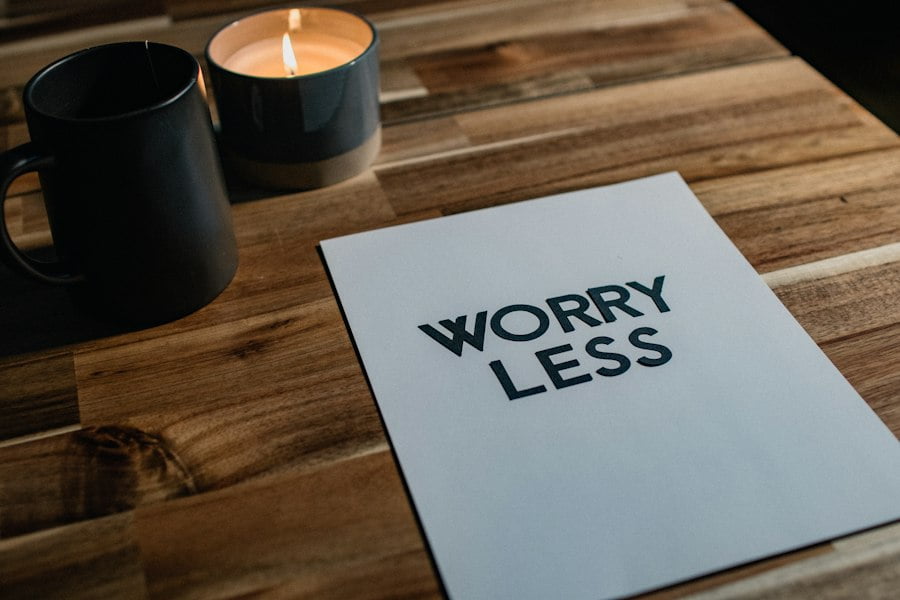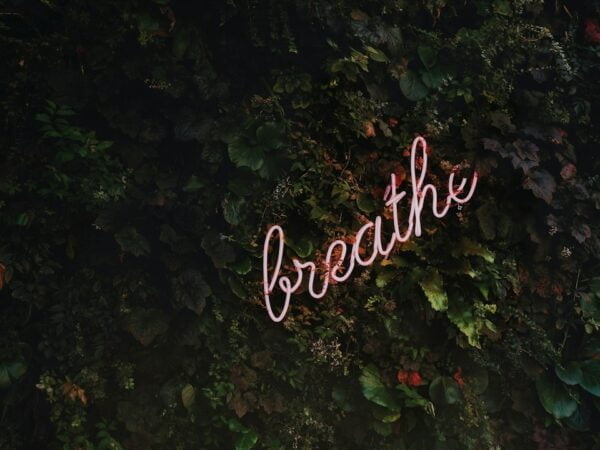
5 Simple yet Effective Healthy Habits for Managing Anxiety
Anxiety is a prevalent mental health condition that affects millions of people worldwide. It can have a significant impact on daily life, making it difficult to focus, sleep, and engage in social activities. While there are various treatment options available for anxiety, healthy habits can be a powerful tool for managing symptoms and promoting overall well-being.
Key Takeaways
- Regular exercise can help reduce anxiety symptoms.
- Mindful breathing techniques can calm the mind and body.
- Adequate sleep promotes mental health and wellness.
- A balanced diet supports brain function and mood.
- Social support builds resilience and coping skills.
Healthy Habit #1: Regular Exercise to Reduce Anxiety Symptoms
Regular exercise has been shown to be an effective way to reduce anxiety symptoms. When we exercise, our bodies release endorphins, which are natural mood boosters. Exercise also helps to reduce stress hormones such as cortisol and adrenaline, which can contribute to anxiety.
There are many different types of exercise that can be beneficial for managing anxiety. Cardiovascular exercises like running, swimming, or cycling can help to release tension and improve mood. Yoga and Pilates are also great options as they combine physical movement with mindfulness and deep breathing techniques.
Incorporating exercise into your daily routine doesn’t have to be complicated. Start by setting aside a specific time each day for physical activity, whether it’s in the morning before work or in the evening after dinner. Find activities that you enjoy and that fit into your lifestyle. Remember, even small amounts of exercise can make a big difference in managing anxiety symptoms.
Healthy Habit #2: Mindful Breathing Techniques to Calm the Mind and Body
Mindful breathing is a simple yet powerful technique for managing anxiety. It involves focusing your attention on your breath and observing it without judgment. This practice helps to calm the mind and body by activating the relaxation response.
To practice mindful breathing, find a quiet place where you can sit comfortably. Close your eyes and take a deep breath in through your nose, allowing your belly to expand. Then exhale slowly through your mouth, letting go of any tension or stress. Repeat this process for a few minutes, focusing on the sensation of your breath entering and leaving your body.
There are many resources available for learning more about mindful breathing techniques. Books, online tutorials, and meditation apps can provide guidance and support as you develop your practice. Remember, consistency is key when it comes to mindfulness. Try to incorporate mindful breathing into your daily routine, even if it’s just for a few minutes each day.
Healthy Habit #3: Adequate Sleep to Promote Mental Health and Wellness
| Healthy Habit #3: Adequate Sleep to Promote Mental Health and Wellness | |
|---|---|
| Recommended hours of sleep per night | 7-9 hours |
| Benefits of adequate sleep | Improved mood, better memory, increased creativity, reduced stress, lower risk of depression and anxiety |
| Risks of inadequate sleep | Increased risk of depression and anxiety, impaired cognitive function, weakened immune system, higher risk of accidents and injuries |
| Tips for better sleep | Establish a regular sleep schedule, create a relaxing bedtime routine, avoid caffeine and alcohol before bed, limit screen time before bed, make sure your sleep environment is comfortable and dark |
Sleep plays a crucial role in our mental health and well-being. Lack of sleep can exacerbate anxiety symptoms and make it more difficult to cope with stress. On the other hand, getting enough quality sleep can help to regulate emotions, improve concentration, and reduce anxiety.
Improving sleep hygiene is essential for promoting better sleep. This includes creating a relaxing bedtime routine, avoiding stimulating activities before bed, and creating a comfortable sleep environment. It’s also important to establish a consistent sleep schedule by going to bed and waking up at the same time each day.
If you struggle with sleep, there are several strategies you can try. Relaxation techniques such as deep breathing or progressive muscle relaxation can help to calm the mind and prepare the body for sleep. Creating a sleep-friendly environment by keeping your bedroom cool, dark, and quiet can also promote better sleep.
Healthy Habit #4: Balanced Diet to Support Brain Function and Mood
The food we eat has a significant impact on our mental health. A balanced diet that includes nutrient-rich foods can support brain function and promote positive mood. On the other hand, consuming processed and sugary foods can contribute to inflammation in the body and worsen anxiety symptoms.
Incorporating nutrient-rich foods into your daily diet is essential for managing anxiety. Foods rich in omega-3 fatty acids, such as fatty fish, walnuts, and flaxseeds, have been shown to reduce anxiety symptoms. Foods high in magnesium, such as leafy greens, nuts, and seeds, can also help to promote relaxation.
It’s important to avoid processed and sugary foods as much as possible. These foods can lead to blood sugar spikes and crashes, which can contribute to anxiety symptoms. Instead, focus on whole foods such as fruits, vegetables, lean proteins, and whole grains.
Healthy Habit #5: Social Support to Build Resilience and Coping Skills

Social support is crucial for managing anxiety. Having a strong support network can provide a sense of belonging and help build resilience and coping skills. Friends, family members, or support groups can offer a listening ear, practical advice, and emotional support during difficult times.
Building a support network starts with reaching out to the people in your life who you trust and feel comfortable talking to. Share your feelings and experiences with them and let them know how they can support you. It’s also important to be open to receiving support and asking for help when you need it.
If you don’t have a strong support network in your life, consider joining a support group or seeking therapy. Support groups provide a safe space to connect with others who are going through similar experiences. Therapy can also be beneficial for learning coping skills and developing strategies for managing anxiety.
Bonus Tip #1: Limiting Caffeine and Alcohol Consumption for Better Mental Health
Caffeine and alcohol are substances that can have a significant impact on anxiety symptoms. Caffeine is a stimulant that can increase heart rate and contribute to feelings of restlessness or jitteriness. Alcohol is a depressant that can initially provide temporary relief from anxiety but can worsen symptoms in the long run.
If you’re experiencing anxiety, it’s important to limit your consumption of caffeine and alcohol. Consider switching to decaffeinated beverages or herbal teas instead of coffee or energy drinks. When it comes to alcohol, moderation is key. Limit your intake and be mindful of how it affects your anxiety symptoms.
Bonus Tip #2: Incorporating Relaxation Techniques into Daily Routine for Stress Relief
In addition to mindful breathing, there are many other relaxation techniques that can help to relieve stress and anxiety. These techniques can be incorporated into your daily routine and can be done anywhere, making them accessible and convenient.
Progressive muscle relaxation is a technique that involves tensing and then relaxing different muscle groups in the body. This practice helps to release physical tension and promote relaxation. Another technique is visualization, where you imagine yourself in a peaceful and calming environment.
Other relaxation techniques include listening to calming music, taking a warm bath, or engaging in a creative activity such as painting or writing. Find what works best for you and make it a priority to incorporate relaxation into your daily routine.
Bonus Tip #3: Seeking Professional Help for Persistent Anxiety Symptoms
While healthy habits can be effective for managing anxiety, it’s important to seek professional help if you’re experiencing persistent symptoms. A mental health professional can provide a diagnosis, offer guidance and support, and develop a personalized treatment plan.
If you’re unsure where to start, consider reaching out to your primary care physician for a referral. They can connect you with a therapist or psychiatrist who specializes in anxiety disorders. Online directories and helplines can also provide resources for finding mental health professionals in your area.
Therapy and medication are common treatment options for anxiety. Cognitive-behavioral therapy (CBT) is a type of therapy that focuses on identifying and changing negative thought patterns and behaviors. Medications such as selective serotonin reuptake inhibitors (SSRIs) can help to regulate brain chemistry and reduce anxiety symptoms.
The Power of Simple Healthy Habits for Managing Anxiety
In conclusion, healthy habits can be powerful tools for managing anxiety and promoting overall well-being. Regular exercise, mindful breathing, adequate sleep, a balanced diet, and social support are all essential for managing anxiety symptoms. Additionally, limiting caffeine and alcohol consumption, incorporating relaxation techniques into your daily routine, and seeking professional help when needed can further support anxiety management.
It’s important to remember that managing anxiety is a journey, and what works for one person may not work for another. It may take time to find the right combination of healthy habits and treatment options that work best for you. Be patient with yourself and prioritize self-care as you navigate your anxiety management journey.
If you’re struggling with anxiety, don’t hesitate to reach out for help. There are resources available to support you, and you don’t have to face it alone. With the right tools and support, you can learn to manage your anxiety and live a fulfilling and balanced life.
FAQs
What is anxiety?
Anxiety is a feeling of unease, such as worry or fear, that can be mild or severe. It is a normal response to stress, but when it becomes excessive and interferes with daily life, it may be considered an anxiety disorder.
What are some healthy habits for managing anxiety?
Some healthy habits for managing anxiety include regular exercise, getting enough sleep, practicing relaxation techniques such as deep breathing or meditation, eating a balanced diet, limiting caffeine and alcohol intake, and seeking support from friends, family, or a mental health professional.
How does exercise help manage anxiety?
Exercise can help manage anxiety by reducing stress hormones, increasing endorphins (feel-good chemicals), improving sleep, and providing a healthy outlet for pent-up energy and emotions.
What are some relaxation techniques for managing anxiety?
Some relaxation techniques for managing anxiety include deep breathing, progressive muscle relaxation, visualization, and meditation. These techniques can help calm the mind and body, reduce muscle tension, and promote a sense of relaxation and well-being.
How does diet affect anxiety?
Diet can affect anxiety by influencing the levels of neurotransmitters (chemical messengers in the brain) that regulate mood and anxiety. Eating a balanced diet that includes whole grains, fruits and vegetables, lean protein, and healthy fats can help support mental health and reduce anxiety symptoms.
When should I seek professional help for my anxiety?
You should seek professional help for your anxiety if it interferes with your daily life, causes significant distress or impairment, or if you experience symptoms such as panic attacks, persistent worry or fear, avoidance behaviors, or physical symptoms such as rapid heartbeat or difficulty breathing. A mental health professional can provide an accurate diagnosis and recommend appropriate treatment options.

















